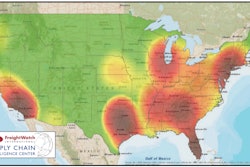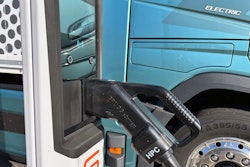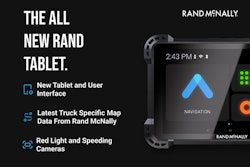At the Truckstop.com user conference a couple weeks back, company Director of Assurance Services Sonny Smith hosted a session that detailed one brokerage’s experience with a scam that’s seeing increasing use by thieves “posing at successful brokers, shippers and carriers,” Smith said, “using falsified documents, throw-away phones – they’re luring carriers through falsified BOLs and rate confirmations” to haul loads they’ve already fraudulently obtaining themselves by stealing an independent carrier or owner-operator’s identity and fooling the brokerage on the other end.
Once the unsuspecting trucker picks up the load, the thieves then request fuel-advance cash from the broker, bag the money and disappear as if into the ether.
Smith calls it “currently the most common scam” out there.
NATCO Transportation Vice President Cori Eckley has seen it up close and in person. She told the story of a load going from California to New Jersey that the company tendered to a B&G Trucking in California, whose authority checked out. “Nothing outside the norm” has occurred here, she said, but for the fact that the B&G she is talking to is not the B&G she thinks it is.
“Now the scammer evolves to a new role,” she said, transitioning its name to “Runaway Freight” and posing as a broker with an available load, boosting the rate posted to the board to entice an unsuspecting trucker and spoofing NATCO’s rate confirmation to contract with another carrier, who doesn’t realize anything is untoward until he/she gets well down the road, the thieves have banked the fuel-advance money and the carrier can’t find the broker that owes him/her for the load’s transport.
What happens at this stage is that the carrier goes after the shipper and, in the case mentioned above, the shipper notifies its broker, NATCO, who’s now on the hook to pay a carrier it doesn’t know at a rate it never agreed to.
For a carrier, that might sound like a win, but, if you do in fact receive payment, there’s the rigamarole in identifying and then arguing your case with the befuddled/conned broker for payment, for one, and also the ever-present possibility that you could be the other carrier party in this transaction and be conned yourself by having your business identity used for fraudulent activity.









